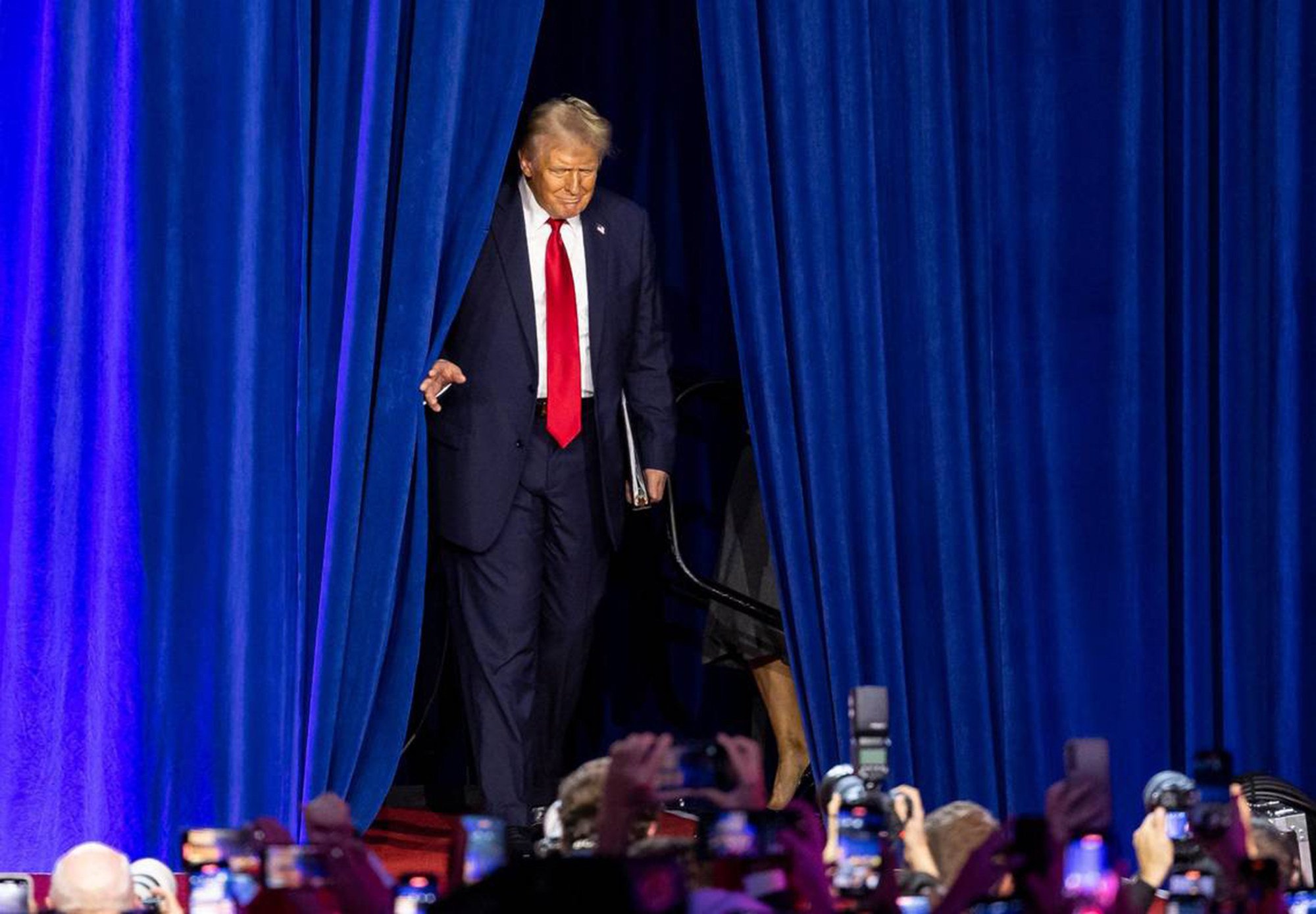Mexico’s leader has assured that her country’s ties with the US after Donald Trump’s election victory would be favourable, though experts warned Chinese investments there and revisions to a key free-trade agreement could complicate matters.
Claudia Sheinbaum, who took office last month, said during a press conference on Wednesday that she was “convinced” relations with Washington would remain positive.
Do you have questions about the biggest topics and trends from around the world? Get the answers with SCMP Knowledge, our new platform of curated content with explainers, FAQs, analyses and infographics brought to you by our award-winning team.
“We are a free, independent, sovereign country and there will be good relations with the United States,” she added.
The president also tried to calm the markets after the Republican’s victory sent the Mexican peso to its lowest value against the dollar in two years, reflecting anxiety about possible trade tensions.
The Mexican peso opened down more than 3 per cent on Wednesday, trading at US$0.048 per dollar.
The performance echoed other currencies from developing countries that registered devaluation against the US dollar.

The offshore Chinese yuan, for example, fell more than 900 basis points on Wednesday against the dollar at one point, dropping below 7.19, before regaining some ground.
“There’s no reason to worry,” said Sheinbaum. “For our compatriots, for Mexican entrepreneurs, there’s no reason to worry. Mexico always comes out ahead.”
Despite the Mexican leader’s assurances, experts voiced less optimism about the medium- and long-term prospects for the Latin American country, as discussions to review the USMCA free-trade agreement with its northern neighbours begin next year.
As agreed when launched in 2020, the trade deal undergoes periodic reviews to correct imbalances. The formal process begins in 2026, but negotiations are expected to start as soon as the second half of next year.
During his presidential campaign, Trump repeatedly criticised Mexico’s supposed advantages in the deal and vowed to review them if he returned to the White House.
“There are always things that you can do better. I got a clause that gives me the right to renegotiate [the USMCA],” Trump told Fox News in October. “Who else would think of that except a business person?”
In the same interview, the former president said Washington was being “screwed by Mexico and by China and by Canada and by the European Union”.
Trump has also previously complained about China’s growing participation in the Mexican electric-car industry and said his planned tariffs would make the product “unsellable” to Americans, forcing mainland carmakers to open plants in the US.
“They’re owned and built by China in Mexico, and there are a number of them going up right now,” Trump said, referring to Chinese EV factories.
There is now only one small Chinese car factory in Mexico, owned by JAC Group, but BYD, the mainland’s top EV maker, was in advanced talks to open a large facility there, as reported by the Post in April.
The development has worried Biden administration officials because car parts are not covered by the USMCA’s “rule-of-origin” provision. That rule requires most of a product’s raw materials to come from Mexico, Canada or the US to be eligible for duty-free trade under the deal.
Diego Marroquin Bitar of the Washington-based think tank Wilson Centre, said that while the USMCA does not discriminate based on the origin of capital, it is possible that Trump could decide to impose tariffs on products made in Mexico with Chinese money.
“All these talks will now be on the table. That’s how we got to the USMCA in the first place, when he threatened to leave the [North American Free Trade Agreement] that we had before,” said Bitar, referring to the trilateral deal’s predecessor.
A thorough review of the USMCA’s provisions could have significant consequences for the Mexican economy, he added, hurting both Mexican producers and US consumers.
Monitoring capital coming from China remains a very difficult task for the Mexican government, as many firms enter the market through subsidiaries or LLCs, Bitar continued.
The scholar further predicted that Trump’s pressure on Sheinbaum could start with “critical sectors” that Biden officials already focus on, such as “border infrastructure, electric or connected cars and basically any initiative that could collect data”.
Mainland companies themselves or Beijing authorities could also take steps to avoid friction with the incoming Trump administration and cancel expected investments, such as the BYD factory, Bitar said.
“China as a country would like to have less trouble with the US, and having a factory right across the border would be an easy target” for the once and future leader, he added.
More from South China Morning Post:
- EU has wish list for Trump, but support for his tough China agenda will be expected
- World waits to see how Trump reshapes US approach to trade, China and security
- Stocks, bitcoin soar after Trump’s victory, while inflation worries rise; Dow surges 1,500
- China’s EV king BYD and 3 rivals report record sales as domestic market hums
- Mexico seeks US help in cutting back on imports from China
For the latest news from the South China Morning Post download our mobile app. Copyright 2024.





